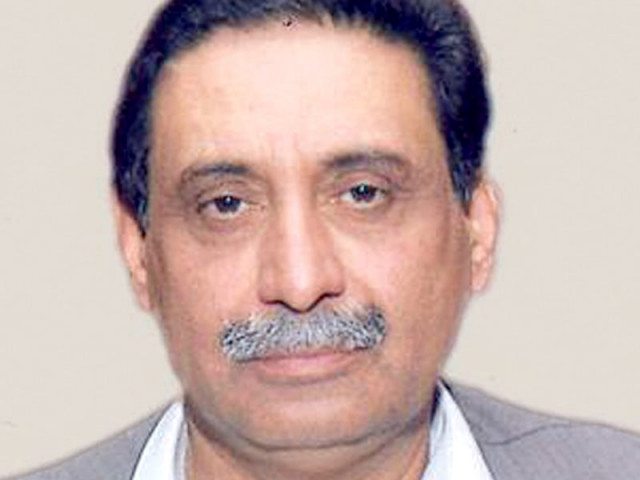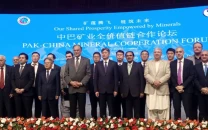Discussing Balochistan: Speakers for complete civilian control of province’s affairs
Seminar marks first death anniversary of activist Shiekh Asad Rahman.

Balochistan Assembly Speaker Mir Jan Jamali. PHOTO: FILE
The harsh social reality of Pakistan’s largest province in terms of area and the state’s narrative surrounding it were discussed with brutal honesty on Saturday at a seminar on opportunities and challenges for democratic dispensation in Balochistan. The seminar was organised by SUNGI Development Foundation in connection with the first death anniversary of activist and intellectual Sheikh Asad Rahman. It turned out to be a befitting tribute to Rahman, who fought for the rights of Balochistan’s natives throughout his life, first through an armed resistance in the ‘70s, and later through social activism.

The discussion turned tense but liberating candid when Aasim Sajjad Akhtar’s speech was interrupted by an audience member. Akhtar, the Secretary-General of the Awami Workers Party, had followed human rights defender Tahira Abdullah to the dais and was talking about the way young Pakistani students still exclusively blame India for the events of 1971.
A white-bearded man in the audience stood up from his seat and shouted angrily that India and Russia attacked West Pakistan.
“This is exactly what I am saying. We are so blinded by a propagandist narrative, we can’t even tolerate an opposing point of view,” Akhtar responded, after the man was asked to sit down by the organisers.
Akhtar went on to say the question about factors that have forced Balochistan’s people to pick up arms in resistance should be asked of the Pakistani state, before adding that the current Balochistan political situation has presented a possibility for improvement.
What followed was a raging address by Naseer Memon, who spoke in his personal capacity, and quite literally said “enough is enough.”
“How many more lies are we going to tell? These lies have destroyed us,” Memon said. “Pakistan might not be so vulnerable to external threats but please save this country from its own.” Memon said Balochistan’s social indicators are so poor that the federal government should be embarrassed in collecting taxes from the province.
Earlier, Tahira Abdullah strongly condemned the ruling elite for not letting the province’s conditions improve. She said Balochistan has been studied to death, but recommendations on improving the province’s situation have been ignored for decades.

Former ambassador Ashraf Jahangir Qazi, a Pashtun from Balochistan’s Pishin district, said “Balochistan is the smallest province in terms of population and the largest in terms of injustice. Everyone either blames the Balochistan issue on India or the tribal elders,” Qazi said.
Later, suggestions on Balochistan’s future were presented by Balochistan’s politicians on the panel, Mir Jan Jamali and Mir Hasil Bizenjo.
Bizenjo, a sitting senator from the province’s ruling-coalition National Party, said the provincial government has increased the health and education budgets to 24 per cent and 16 per cent from four and three respectively.
Of the federal government’s three promises to the Balochistan government in May, Bizenjo said the problems of bullet-ridden bodies and missing persons have somewhat resolved in the past two months.
“If the third promise of the establishment’s parallel forces being removed is fulfilled, we assure that every Baloch will be onboard,” Bizenjo said, after he had said Balochistan’s problems are a product of the establishment’s blunders.
Jamali, the speaker of the Balochistan Assembly and a member of PML-N, said elections and elected representatives have to be given the rein in Balochistan. It is also partly the elected representatives’ responsibility to deliver for the Baloch and be accountable, he said.
“Islamabad must understand Balochistan,” Jamali said. “You cannot develop this country’s future without Balochistan.”
Published in The Express Tribune, November 4th,2013.



















COMMENTS
Comments are moderated and generally will be posted if they are on-topic and not abusive.
For more information, please see our Comments FAQ